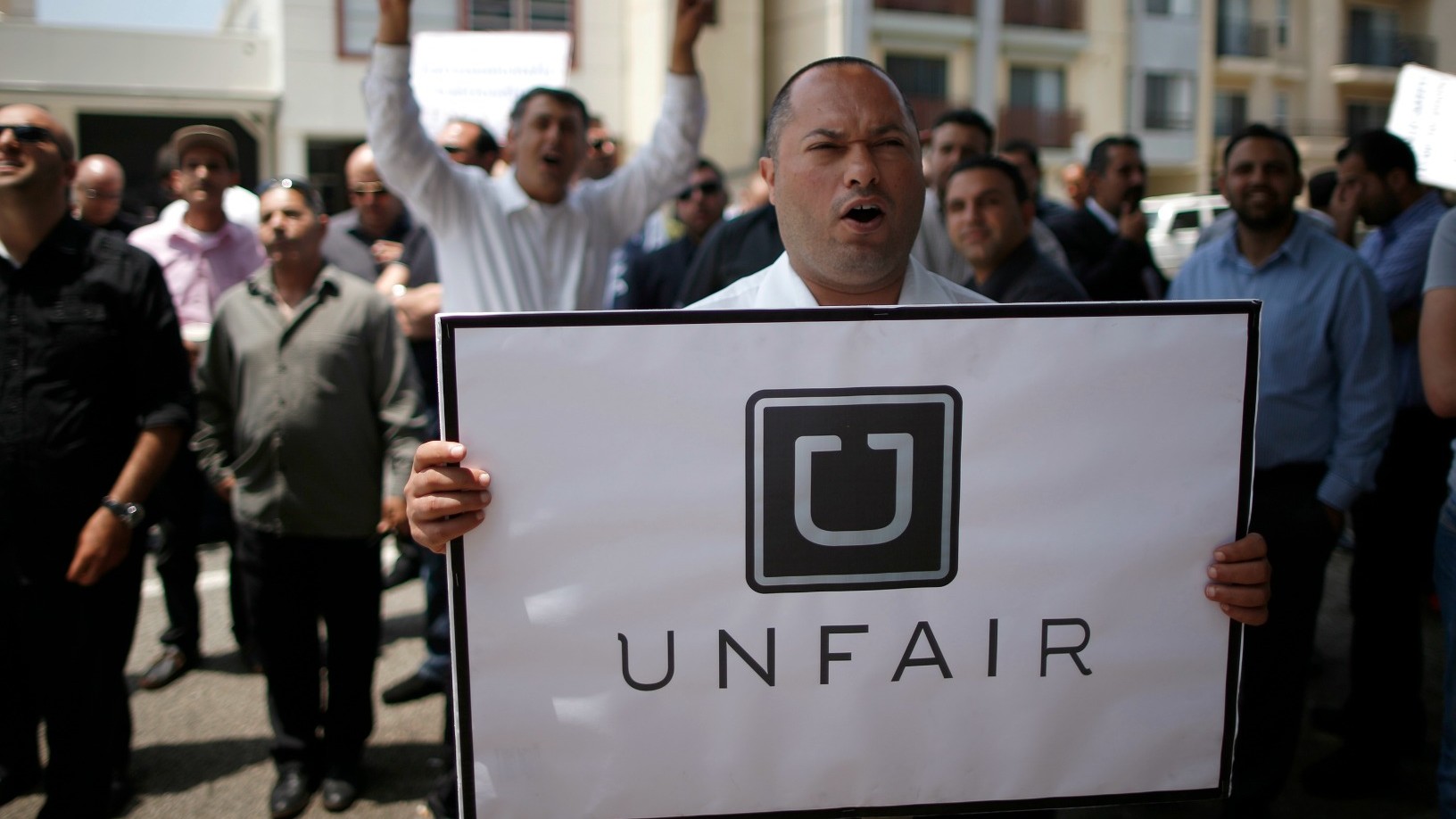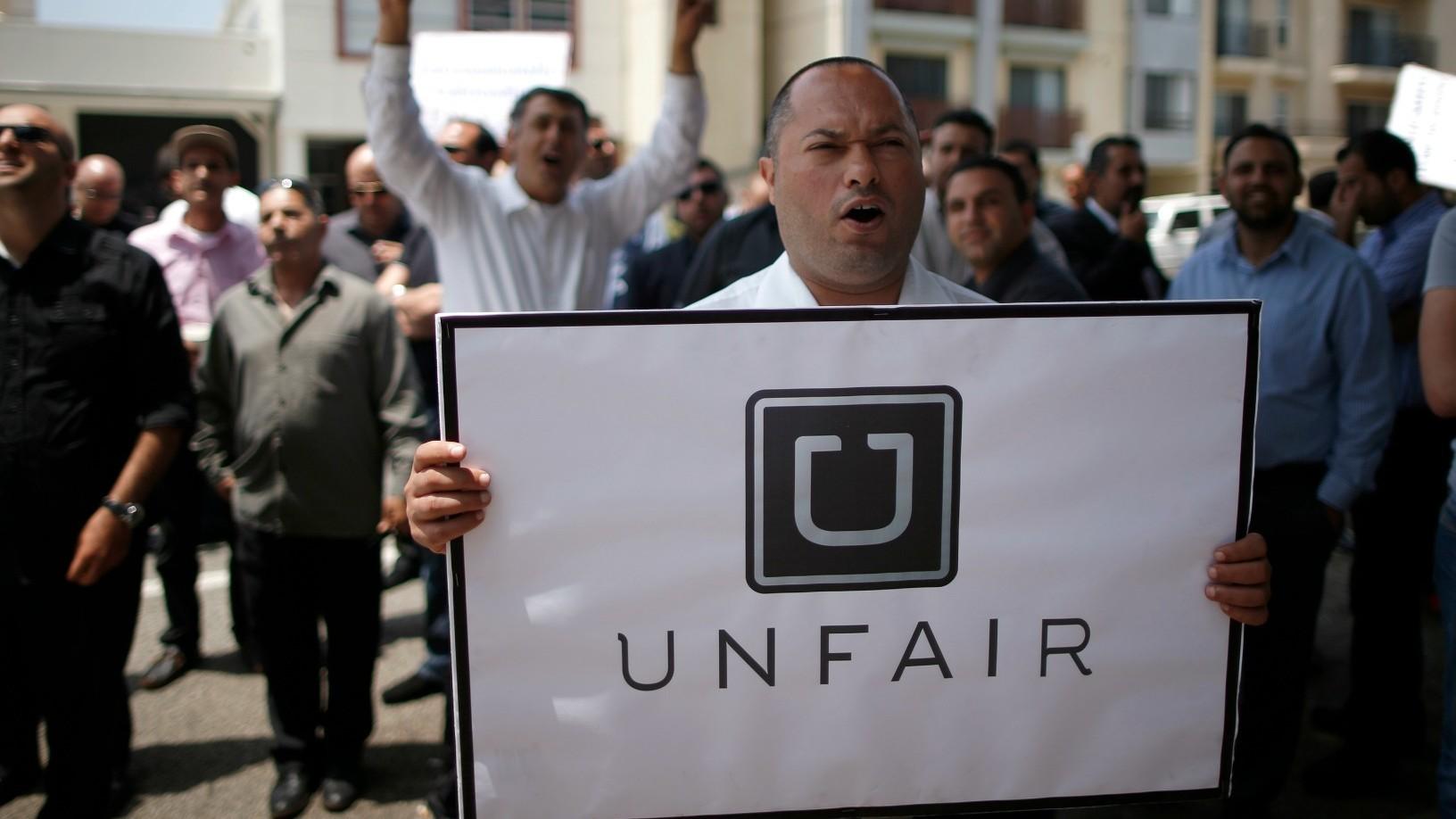
When you think of disruptors in the sharing economy, who comes to mind? The Ubers, the Airbnb’s or the Instacarts? Technology has allowed companies in this new economy to grow exponentially. Michael Krasny (@KQEDForum) talks with Stephen Hill on what this means for drivers working for ridesharing companies such as Uber and Lyft.
The sharing economy is the perfect forum for businesses such as ridesharing because anyone can build upon their vision. However, with freedom comes responsibility, an aspect many larger companies have set aside in favor of making a profit. Currently, both Lyft and Uber are being sued by workers who want to be recognized as employees instead of contractors. The switch would mean writing off expenses like a new car or gas and having benefits.
On a recent episode of Michael Krasny’s Forum, Stephen Hill, author of Raw Deal, criticized sharing economy companies like Uber for taking advantage of their contractors since the last recession. The decision on whether or not Uber drivers are contractors or employees will get its day in court next June. I understand that if If you’re a small business owner or CEO of a startup it makes sense to hire contractors because you’ll save 30% on expenses, but when you’ve reached the billion dollar mark you should at least let drivers keep their tips. Uber has gone beyond startup territory and it will be interesting to see what the courts will rule this June.
Just to give you a picture, In 2014, the company had a net worth of 6 billion dollars and its infamous CEO, Travis Kalanick, made the Forbes list last year as of one of the richest Americans. What Hill basically said during the whole show is that people are fighting over scraps in this economy. Since the recession of 2009, ⅕ of all jobs have become temp jobs. In the past, you would think of part-time jobs for students or people who were retired and wanted to socialize, but nowadays, part-time temporary jobs are what a lot of Americans rely on to make a living. While doing my research, I wondered if Lyft, Uber’s main competitor does things differently.
I was curious because my colleagues ride with Lyft instead of Uber. Drivers can earn more on Uber, but Lyft lets them keep their tips. According to their website, Lyft offers car insurance for drivers. The difference is also in the way the drivers come across. For the most part, Uber drivers seem more serious and passengers sit in the backseat. Lyft drivers are more personable and invite passengers up front -- although some passengers still chose to sit in the backseat.
Although it has yet to offer contractor's employee status, Lyft tries to create a sense of community and does let drivers keep their tips, which they say accounted for 40 million dollars last year. Neither company offers any kind of benefits package, but Lyft has partnered with Shell to offer discount gas prices. Brandon, a full-time Lyft driver had this to say to CNN: "With things like this and the way they really make you feel valued, I don't think we need to be employed… The way Uber treats its drivers, it's take and take and take.”
Driving for Lyft could mean making ends meet in a post-recession economy, but it also means not having the security or benefits that once came with jobs in the past.
At the end of the show, a driver for the San Francisco based ride-sharing company, Lyft, called in to counter the negative comments made. He went on to praise Lyft as giving him a second chance in life. Becoming a father later in life, he lost his job and was looking to earn an income to support his new child, saying:
“I count myself in the position where I needed an income… that was flexible and allowed me to take care of my son. That was okay for someone who was 52 years old and coming back into the labor force and Lyft has been very good.”
What can entrepreneurs looking to start their marketplace learn from how ride-sharing companies have grown? For one thing, perks matter. If you can’t afford to hire employees, offer better incentives than your competitor. Discounts on work related expenses will also be appreciated. And last but not least, create a sense of community and offer flexibility. Above all, be present by listening to what your workers are saying.
These companies have gotten to where they are because of a brilliant idea, but let’s not forget the people that helped them get to where they are now. It’s encouraging to discover small ways they are creating a better work experience with perks and for the previous caller, an opportunity to re-enter the workforce and support his family. Many drivers are enjoying the freedom of making their own hours and earning an extra income but a lot of them are also struggling.
The battle to attract and keep good drivers has compelled Uber and Lyft to offer incentives to keep drivers around, but I don’t think it’s enough. It will be interesting to see how this will play out in court next June. Will leaders view Uber drivers as contractors or grant them employee status? Time will tell.



